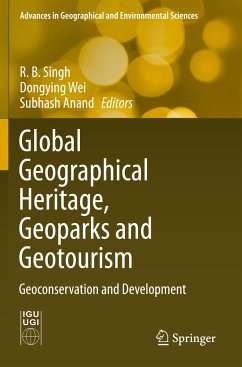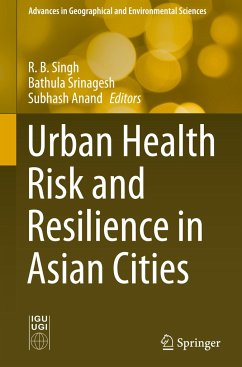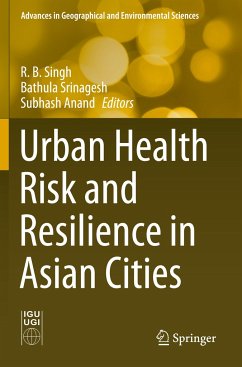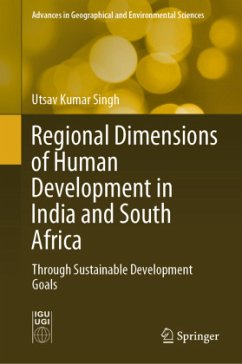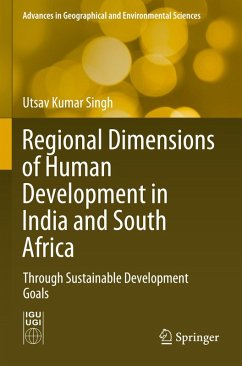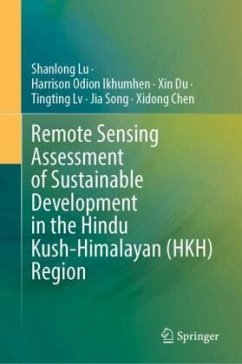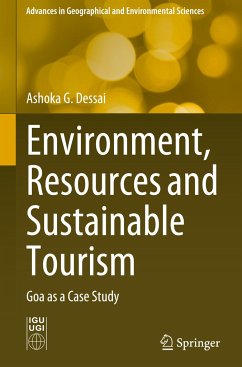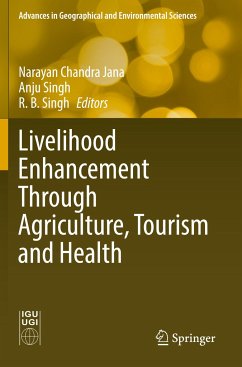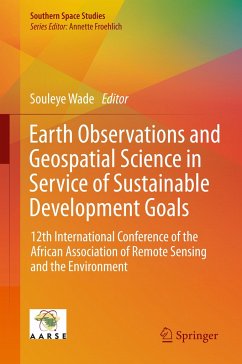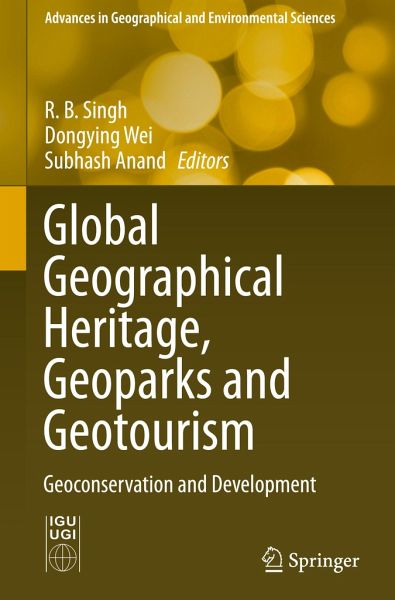
Global Geographical Heritage, Geoparks and Geotourism
Geoconservation and Development
Herausgegeben: Singh, R. B.; Wei, Dongying; Anand, Subhash

PAYBACK Punkte
65 °P sammeln!
This book explores the geographical, geomorphological, ecological, touristic and socioeconomic aspects of natural heritage, argues for the dynamic conservation of that heritage and explains its key characteristics, promotion, conservation and management to achieve sustainable development goals. Emerging concepts such as geodiversity, geographical heritage sites, geomonuments, geoparks and geotourism are increasingly being used by conservationists. At present, the development of geoparks is a major global theme involving the application of geosciences to promote the inclusive growth of society ...
This book explores the geographical, geomorphological, ecological, touristic and socioeconomic aspects of natural heritage, argues for the dynamic conservation of that heritage and explains its key characteristics, promotion, conservation and management to achieve sustainable development goals. Emerging concepts such as geodiversity, geographical heritage sites, geomonuments, geoparks and geotourism are increasingly being used by conservationists. At present, the development of geoparks is a major global theme involving the application of geosciences to promote the inclusive growth of society and the protection and conservation of our unique geoheritage. Currently, there are 147 UNESCO global geoparks across 41 countries, in addition to a number of national-level geoparks. Pursuing a holistic approach towards such sites will sensitise the general public to the need for geoconservation of significant geosites and promote it through geotourism. It is a crucial issue, as variouscountries around the world are eager to develop their geoparks and are working for the conservation of geoheritage sites at the national level.
This unique book gathers contributions from 15 countries in the form of case studies analysing the realities on of geographical heritage, geoparks and geotourism. The respective chapters address the role of geoparks as essential tools for education, recreation and nature conservation. Given its scope, the book offers a valuable guide for geoscientists, planners, policymakers, civil society and anyone concerned about the conservation of geoheritage sites and geoparks for a sustainable future Earth.
This unique book gathers contributions from 15 countries in the form of case studies analysing the realities on of geographical heritage, geoparks and geotourism. The respective chapters address the role of geoparks as essential tools for education, recreation and nature conservation. Given its scope, the book offers a valuable guide for geoscientists, planners, policymakers, civil society and anyone concerned about the conservation of geoheritage sites and geoparks for a sustainable future Earth.



